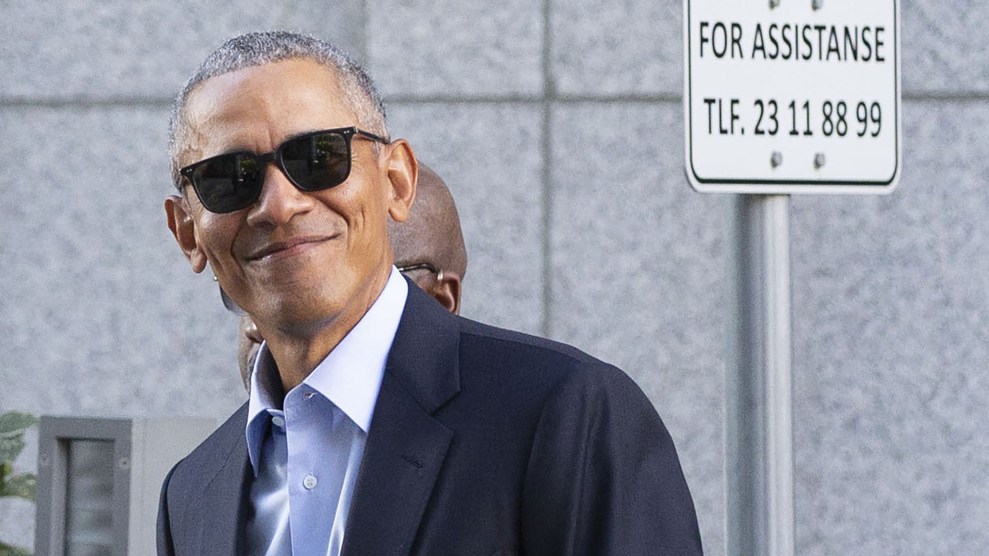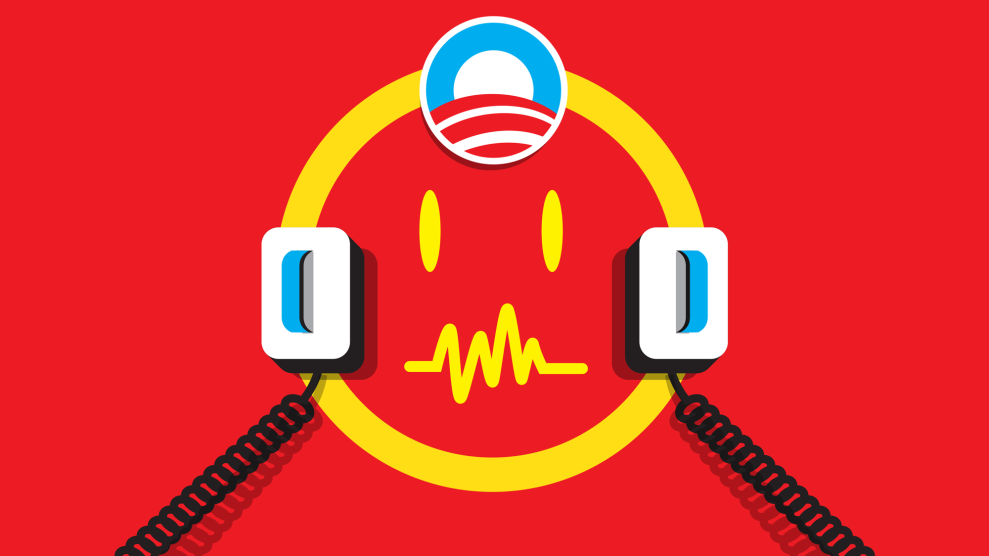
Hagen/NTB Scanpix/ZUMA
It’s looking like voters are fans of Obamacare when they have a chance to directly vote on it—even in deeply red states like Utah.
Utah is one of four states with ballot initiatives next month that ask voters about Medicaid expansion, the part of the Affordable Care Act that broadens eligibility for Medicaid to anyone making up to 138 percent of the poverty line. But as in a number of other Republican-controlled states, lawmakers in Utah have refused to fully participate in the expansion. A new poll from the Salt Lake Tribune released on Thursday suggests they soon might not have a choice. According to the poll, 59 percent of respondents favor adopting Medicaid expansion, with just 33 percent opposed. That’s up from 54 percent in June.
An estimated 150,000 Utahans stand to gain Medicaid coverage if the initiative passes. And as I explained in an article in the current issue of Mother Jones, it’s a personal cause for many of the activists campaigning for the measure:
For Stephanie Burdick, this year’s Fourth of July parade in West Jordan, Utah, was a major milestone. She was marching in support of a ballot initiative that could expand Obamacare to tens of thousands of new people—quite a feat in one of the most conservative states in the union. But for Burdick, marching at all was a significant accomplishment.
Just three years earlier, she’d suffered a traumatic brain injury while surfing in California when her head slammed into another surfer’s board. She’d spent nearly a month in the hospital and had to relearn how to talk, how to walk, and how to do pretty much everything else. She lost her health insurance when her former employer realized she wouldn’t be able to return to work quickly, and she had to put key parts of her medical care on hold because her new bare-bones plan had a long list of excluded treatments: no walking and balance therapist, no neuro-ophthalmologist for her vision problems, no speech therapist, and no treatment for her migraines.
It wasn’t until she was added to Utah’s Medicaid program—19 months after she applied—that she could restart treatment. “My doctor kept telling me all this treatment I needed,” Burdick says. “And so by the time I was approved for Medicaid, [I was] just thinking about all of the time that I went without making very much progress because I didn’t have access to the care that my recovering brain needs.”
Burdick, now 30, is still working to get back to a normal life. She moved into her own place again this summer after learning how to get around via public transit last year; by July, she was able to slowly walk a parade route to campaign for Proposition 3, the November ballot measure that would provide an estimated 150,000 more Utahns with access to Medicaid under Obamacare.
Health care policy is playing an increasingly important role for the midterm elections. A poll from the Kaiser Family Foundation released this week showed that health care is the most important concern for voters—with 30 percent of voters listing it as the top issue.
Despite all the polls showing voter concerns about health care and support for Medicaid, not every politician is getting the message. While he is expected to easily win next month, Republican Mitt Romney—remember him?—opposes the ballot initiative in the state he wants to represent in the US Senate.
Listen to Stephanie Burdick tell her story on an episode of The Mother Jones Podcast:












